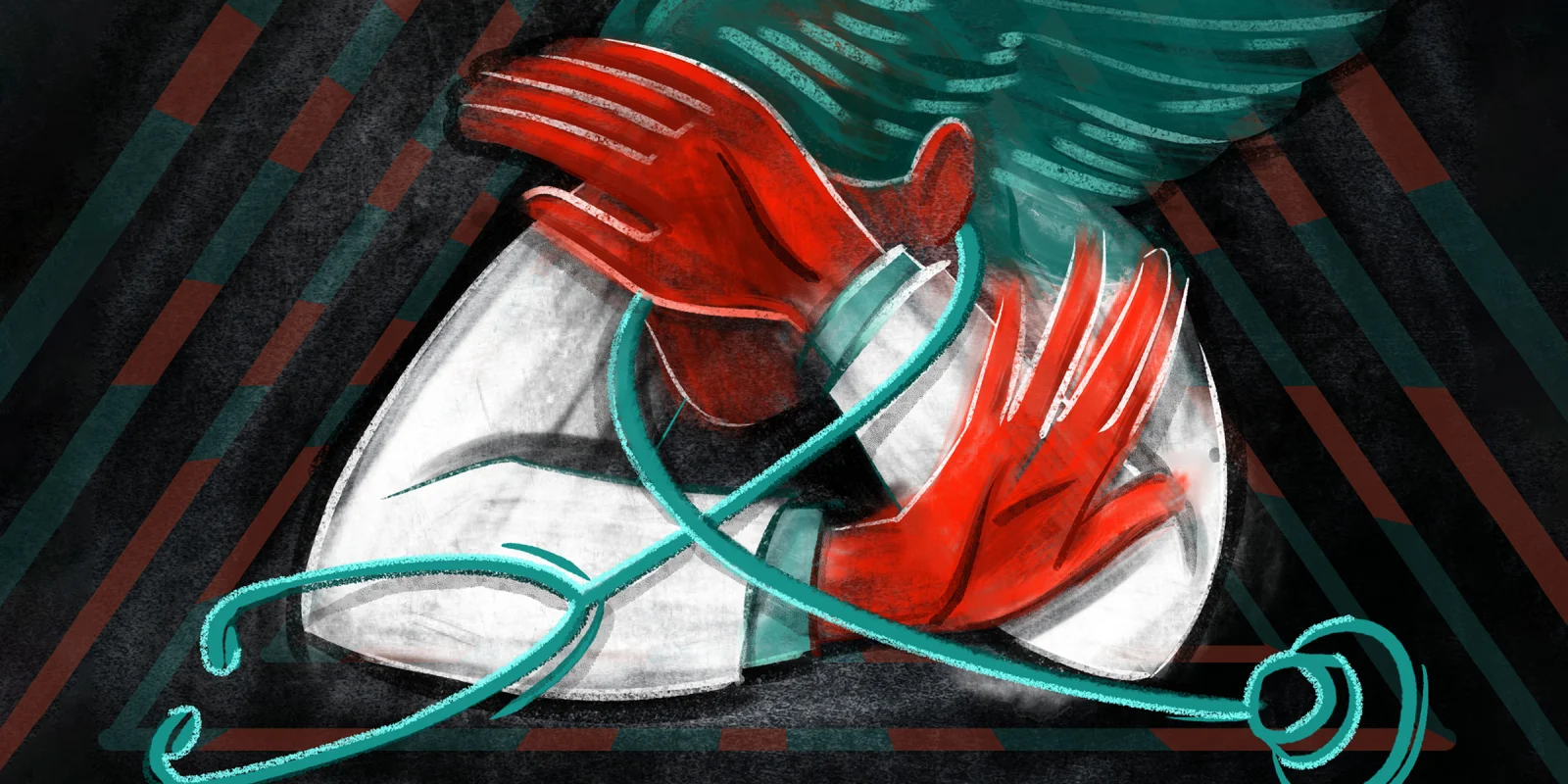Failure is a prominent theme in medicine: failure to thrive; organ failure; failure to progress. We all face it in our practices, ranging from small setbacks to catastrophes. Though I've certainly encountered failures in a clinical setting, I would describe my choice to pursue a career in clinical medicine as my greatest professional failure.
I am, as many physicians are, a congenital people pleaser. As a child I sought good grades and scholarship, which led me to the high ceilings and echoing halls of medical school. I enjoyed the first two years, but when I started clinical rotations my third year, I started having the sensations that would haunt me until I left clinical practice: a pit in my stomach, a welling of pressure in my chest, a sense of dread. I ignored these feelings initially; they would become an unwelcome visitor, returning throughout my residency and career. At first they were subtle and dampened by the excitement I felt when I matched in urology and relocated to start my new job.
But as intern year unfurled, the sensations became more recurring, intensifying as I climbed up the hierarchical ladder as a resident. Every morning, driving to work, I was greeted by them. With every 2 a.m. page, they jolted me from sleep. During every OR case, they were lurking in the corner. A skilled compartmentalizer, I would ignore them or assuage myself by saying, "Residency is supposed to be miserable. When you start your job, things will get better." Even still, I noticed that I was a bit more miserable than the other residents.
After completing residency, I started a job with two other urologists, where an optimal situation fell into my lap. The practice was established, and the community was in desperate need of a third urologist. The owner was fair, and his partner a natural mentor who was consistently available, offering advice and answering any calls I made during tough OR cases. My schedule was flexible and both partners were accommodating. So why, within a year, did my visceral visitors return? Why was I so angry whenever I heard my hospital-designated ringtone? There was also a new sensation – a creeping sense of bitterness that was morphing into a quiet rage with every call night and every OR case. I am ashamed to mention it, but it got so bad that I was written up by the ER staff for rudeness, and I had to meet with the medical executive more than once. I would not have recognized the person I had become. At the time, I attributed all of this to my situation. My mentor had left for academics, resulting in call every other night, and my partner had sustained a life-changing spinal cord injury via a bike accident.
I knew something had to change when I became pregnant with my daughter. I reached out to my former mentor, and he offered me a part-time job at the academic hospital, which I readily accepted. I remember thinking, "This is what I'm looking for. It'll be much better now – less call, small cases, part-time." And, temporarily, it was. I was part of a group of thoughtful, scrupulous physicians. I had a great schedule and autonomy, and I was well-paid.
But the honeymoon period didn't last, and eventually I found myself back in the same place. I started to realize that maybe I had chosen the wrong career. How had I not seen the signs? How had I not known during my medical rotations, when I was stifling yawns during clinic and trying to feign interest and simultaneously quell anxiety while scrubbed in? I now believe that in my quest to be prestigious and have job security, I had neglected myself and ignored my inner voice. Plus, I was 25, and just didn't know myself that well.
When I finally had that glaring realization, I became restless and knew I had to get out. I reached out to a wound care company that I had seen on a job board with the intention of temporizing my situation and then figuring out the next step. Six weeks later, I turned in my notice and turned my back on the specialty in which I'd invested so much for 11 years. After doing so I felt immediate relief. I knew I had made the right decision, even when my announcement to my family and friends garnered looks of trepidation. I felt lighter, as if the weight I had been unaware I was carrying was suddenly gone.
After my departure from urology, I allowed myself time to breathe. I practiced wound care with a light clinical load, seeing maybe 50 patients at nursing home facilities three days per week. It took about two months before I was certain that leaving my specialty wasn't enough – I had to completely sever my ties to clinical practice. The field I was in was irrelevant; it was the clinical aspect that took so much energy from me. I started aggressively applying for non-clinical work. This required considerable introspection, as clinical medicine was all I had ever known. I had no idea what other options were available, or what I would enjoy, or if I would be qualified. Finally, after about 10 months of searching and countless job applications, I landed a job as a clinical imaging reviewer, which I am currently still doing, and actually enjoying. I'm able to apply my medical knowledge and pursue continued learning, the part of medicine that always gave me vigor. And with every passing day, my conviction endures. Over the holidays, my brother mentioned that my smile has returned. He said when I started residency it appeared strained and small, and he had almost forgotten my true smile until the last six months or so.
This all may seem a bit melodramatic. People routinely change jobs. But medicine offers a unique challenge – time. The amount of time invested during training is substantial and can seem hard to "throw away." It can even make us stagnate, and we already value resiliency to the point of perseveration, so the "tough it out" mentality often prevails. This also aligns with the stigma attached to quitting. On the contrary, leaving my specialty, and eventually clinical practice in total, remains one of my biggest achievements. It took courage, introspection, and optimism. Knowing when to quit can be an asset, but it's not always emphasized in our education or in our culture. And the thing about failure is that it's not only imminent, but invaluable, and often leads to opportunity if we are able to recognize it.
During my last day of clinic, a patient said to me, "You know, I limped to the finish line at the end of my career. I wish I had been brave enough to leave sooner." His words stuck with me, because I knew that although I was walking away from comfort, a great salary, my training, and prestige, I was also walking toward my true self, no longer carrying anxiety or bitterness. I was moving forward. And I haven't looked back since.
Dr. Bailey is a board-certified urologist. Though she no longer practices, she is currently doing non-clinical work. Her interests are perimenopause wellness and writing, and she lives with her husband, 3-year-old daughter, and a retired racing greyhound named Gigi in Fairhope, AL.
Illustration by April Brust







